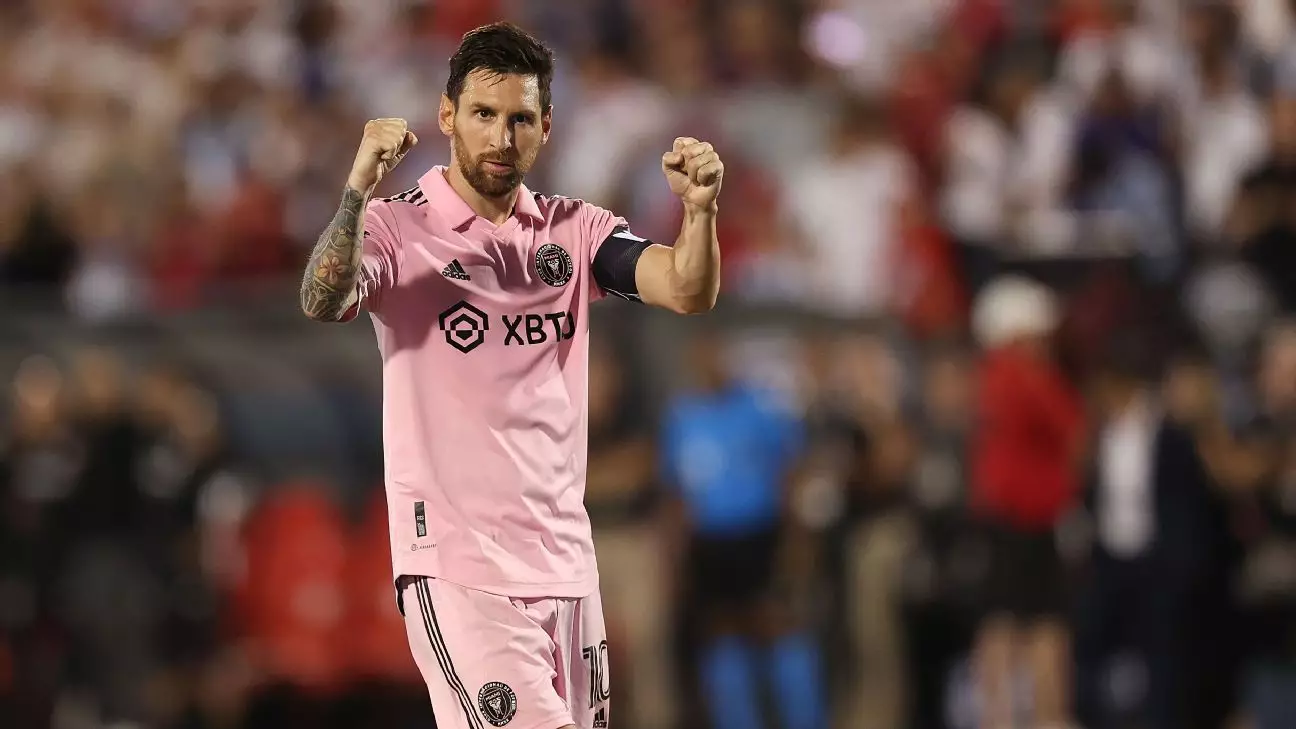The addition of Lionel Messi to Inter Miami marked a seismic shift in Major League Soccer (MLS) and the broader sporting landscape in North America. When Messi’s contract was finalized at an astonishing $150 million, the implications stretched far beyond mere on-field performance; this high-profile signing was a considerable gamble aimed at solidifying Inter Miami as a global powerhouse. Since his arrival on July 15, 2023, the club’s revenue nearly doubled, a clear sign that the financial investment is paying off.
Before Messi graced the field in Fort Lauderdale, the team struggled to find its place in a league often overshadowed by more established sports. The financial metrics are staggering: the Miami franchise’s revenue skyrocketed from $50-$60 million in 2022 to an impressive projected $200 million in 2024. The transformation illustrates how Messi not only attracted fans but also elevated the club to international relevance, as noted by Xavier Asensi, Inter Miami’s president of business operations.
The impact of Messi’s presence has extended the reach of Inter Miami far beyond South Florida and into global markets. Major corporations now view the club as a flourishing brand ripe for marketing opportunities. Before Messi’s entry, Inter Miami primarily established partnerships with smaller businesses, but the endorsement landscape has drastically shifted.
The franchise secured 11 multi-year partnerships in one season alone, including powerhouses like Audi, JPMorgan Chase, and LaCroix. What’s noteworthy is how these corporate entities view Inter Miami— not just as an MLS team but as a potential global entity. Visa’s head of marketing for Latin America, Luciana Resende Lotze, highlighted the club’s newfound international appeal, emphasizing that fans around the world are now looking at Inter Miami as a brand worth investing in.
The strategic shift to align with prominent brands can also be seen as a recognition of the club’s potential for lucrative opportunities. Lowe’s, a direct competitor of existing league partners like Home Depot, bypassed league-wide sponsorship in favor of a more personalized partnership with Inter Miami, acknowledging the club’s impressive growth trajectory post-Messi.
This type of tailored sponsorship will likely become a model for future partnerships within the league. Lowe’s venture extends even further, with an independent deal involving Messi himself—making him the first soccer player to join the ranks of NFL and NBA stars within the company’s marketing campaigns. This innovative partnership has already begun to yield tangible results, thereby reshaping sponsorship dynamics within the league.
Revenue gains aren’t solely from corporate sponsorships; Inter Miami has thrived in the realm of game-day operations. With Messi in the spotlight, attendance at games surged, prompting the team to sell out season tickets months ahead of the 2024 season. The staggering prices—ranging from $867 to upwards of $42,840 for luxury boxes—demonstrate the willingness of fans to pay a premium to see the Argentine superstar play.
Moreover, the appeal of Messi has amplified merchandise sales dramatically. His jersey, touted as the best-selling in the Adidas lineup, underscores his immense popularity. The club’s decision to extend its merchandise offerings throughout the year, rather than limiting sales to game days, has undoubtedly contributed to increased revenue. Fans are not just spectators; they’re engaging with the brand through purchases that extend beyond matches.
Messi’s allure allows Inter Miami to explore new revenue streams through international matches. The club’s first global tour featured games in countries like Saudi Arabia and Japan, where local governments actively sought out the franchise for friendly matches. This initiative not only generates additional revenue but also significantly boosts the club’s profile on a worldwide stage.
The forthcoming stadium, Miami Freedom Park, symbolizes the club’s broader ambitions and future aspirations. Frameless in its design, the stadium aims to cater to a diverse audience while incorporating modern amenities. Messi’s contract extension through 2025 raises hopes for an opening appearance in the new venue, further solidifying his indispensable role in the club’s legacy.
Despite its remarkable ascent, Inter Miami faces challenges, particularly in maintaining its growing brand and operational momentum. The changing landscape of sports marketing, driven significantly by Messi’s arrival, suggests that the club cannot rest on its laurels. Intentionally leveraging the star’s popularity will be vital for securing future sponsors and ensuring continued financial health.
Lionel Messi’s arrival has rewritten the playbook for Inter Miami, ushering in a new era of increased revenue, larger-than-life sponsorships, and global branding opportunities. The entire landscape of the franchise stands as a testament to the power of one individual to alter not just a team, but the cultural and economic fabric of the soccer community in North America. The onus now lies with the club to continue capitalizing on the Messi effect in the years to come.

Leave a Reply